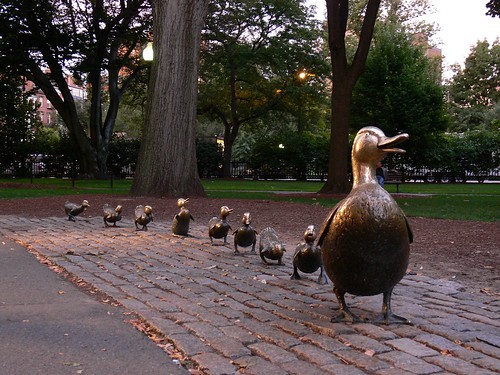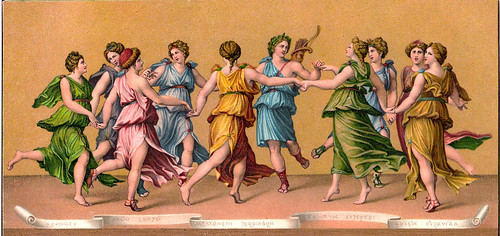 Resistance outwits the amateur with the oldest trick in the book: It uses his own enthusiasm against him. Resistance gets us to plunge into a project with an overambitious and unrealistic timetable for its completion.
Resistance outwits the amateur with the oldest trick in the book: It uses his own enthusiasm against him. Resistance gets us to plunge into a project with an overambitious and unrealistic timetable for its completion.
Steven Pressfield, The War of Art
Drafts and Duty
Not, I hasten to add, the military sort. (“Conscription is slavery, and I don’t think that any people or nation has a right to save itself at the price of slavery for anyone, no matter what name it is called.” Robert Heinlein).
Since my present WIP is the first draft of what for want of a better title I am calling Tsifira, the difficulties of the first draft loom large in my mind.
So I thought I’d share with you the wisdom of a few other writers on the gnarliness that is the first draft.
I love this analogy from Shannon Hale: “I’m writing a first draft and reminding myself that I’m simply shoveling sand into a box so that later I can build castles.”
Sir Terry Pratchett has gems on both the first draft:
“The first draft is just you telling yourself the story.”
and on where the first draft stands in relation to the redrafting (at least for him):
“First draft: let it run. Turn all the knobs up to 11. Second draft: hell. Cut it down and cut it into shape. Third draft: comb its nose and blow its hair. I usually find that most of the book will have handed itself to me on that first draft.”
The writing/sculpture analogy is one that has been around for a while, but here is one of my favourite versions of it, from Anne Pillsworth: “The first draft is a huge pile of clay that you’ve laboriously heaped on your table, patting it into a rough shape as you go along. From the second draft onward, you’ll cut away chunks, add bits, pat and punch and pinch, until you finally have a gorgeous figure of, oh, Marcus Aurelius. Or a duck. But a damn fine duck.”
Jennifer Egan puts her finger on a leading cause of first-draft writer’s block, one that I struggle greatly with:
“I haven’t had trouble with writer’s block. I think it’s because my process involves writing very badly. My first drafts are filled with lurching, clichéd writing, outright flailing around. Writing that doesn’t have a good voice or any voice. But then there will be good moments. It seems writer’s block is often a dislike of writing badly and waiting for writing better to happen.”
So what’s the solution? Just sit down and write it. (Just!) Dare to be awful – just get it down. Write it.
Easier to say than do, I know, but the only way to come out the other end is to keep plugging away at it.
And this is where the Duty element comes in. We do it because we must, not because we find this moment, just now, to be enjoyable.
As the good book says, they who go out weeping to sow the seed will return with shouts of joy, bringing the harvest with them. (Psalm 126.6).
Or as Steven Pressfield, somewhat less poetically puts it, “love being miserable”.
But this is not to say that the process will always and necessarily be an unpleasant one. As the Mother Superior in W. Somerset Maugham’s The Painted Veil puts it: “Remember that it is nothing to do your duty, that is demanded of you and is no more meritorious than to wash your hands when they are dirty; the only thing that counts is the love of duty; when love and duty are one, then grace is in you and you will enjoy a happiness which passes all understanding.” Or as writers call it, flow. (More on that in a later post.)
Side note: who is better at loving the misery: Marines or nuns?
Not to suggest that either are masochistic, but when it comes to the All-Time Hacking-The-Nasty Tougher-Than-Thou contest, who’s got the edge? Those who face death (although quite possibly someone else’s), or those who die daily? Who would like to see that contest? Show of hands?
But the final word on Duty, Discipline and Devotion is brought to you by the letter D the late great Pavarotti: “People think I’m disciplined. It is not discipline. It is devotion. There is a great difference.”
The War of Art
by Steven Pressfield.
Have you read it?
I read it straight through last night.
(That might seem like some kind of feat, but it’s an easy read – so much white space! Interestingly, he doesn’t feel the need to fill his page. Once he’s said what he wants to say on a topic, he stops saying it.)
It’s divided into three sections:
Resistance: defining the enemy
Combating Resistance: turning pro
Beyond Resistance: the higher realm
The first section is concerned with defining the force he calls Resistance, which is the antagonistic force within each of us which tries to stop us doing what we’re supposed to be doing – for writers, writing.
This frequently takes the form of procrastination, but can also disguise itself, he says, as golf, sex, fear, depression and – perhaps most problematic of all – the voice of reason.
To combat this, he says in part two, we turn pro. I wasn’t entirely sure whether he meant literally giving up our jobs for it, but certainly a change of attitude is involved.
If something is your job, you show up, come hell or high water (particularly if you’re not eligible for paid sick leave) and you get it done. You don’t hover nervously wondering if your work (when you eventually produce some) is really good enough compared to others in your field (what if the other plumbers are better than me???)
You don’t go waffling on about how yours “is a high and lonely destiny” either.
You just get on with it.
What stood out to me most was his emphasis on being able to be miserable.
“The Marine Corps teaches you how to be miserable.
“This is invaluable for an artist…
“The artist must be like that Marine. He has to know how to be miserable. He has to love being miserable. He has to take pride in being more miserable than any soldier or swabbie or jet jockey. Because this is war, baby. And war is hell.” (Pressfield, 2002, p.68)
If you wait til writing is the easy option, you will never write.
No excuses.
I got up half an hour early this morning in order to write this. In my own small way (warm dressing gown, hot tea, blue sky outside the window) I am being miserable.
I am sure the Marines could make themselves more miserable with the materials to hand, but hey, I’m not a Marine.
Plus it’ll be miserable enough in here come winter. (For those of you in the Northern Hemisphere, New Zealand houses don’t have central heating. Or that much insulation. We just put on more clothes.)
The third section is all about the unseen reality supporting us, which Pressfield peoples with a bewilderingly syncretistic array of beings: angels from the Talmud, the Nine Muses from the Greek pantheon, Krishna from the Bhagavad-Gita, “God” (unspecified), Nature, a good slosh of Jungian psychology and the ancient common ground of dreams and visions.
A bit of a mixed bag, which makes for something of an unfocussed read, but he has some good points to make about doing what we do because it’s what we do, not because we’re comparing ourselves to someone else – what he calls territorial vs hierarchical thinking.
This is a good book to read, albeit not a precisely argued one – you’ll pick up nuggets of useful wisdom in amongst his diatribes on fundamentalists being less evolved humans than artists and how doing what you’re supposed to do in this world can cure cancer (and apparently everything else).
So there you have it, people: just get on with it.
If you’re prepared to make the sacrifices, make them without complaining. If you aren’t, stop wasting your time and give up now.
Disclaimer: no-one gave me a copy to review, nor did I part with my hard-earned for it. I borrowed a copy from the library. You may consider that this makes me a cheapskate who won’t support their fellow artists; I consider that this makes me an unbiased reviewer.







